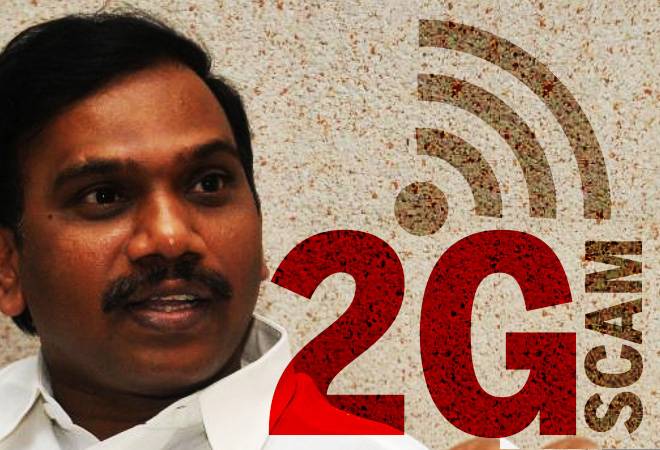
The essential Anti-Corruption enactment in India is the Prevention of Corruption Act 1988 (PCA), which criminalizes, in addition to other things, the taking and giving of an undue advantage to public servants. Both the individuals and organizations are obligated to be punished for an offense under the PCA.
The Act states that undue advantage is any gratification, not restricted to being pecuniary in nature or estimable in cash, other than the legitimate remuneration that a public servant is allowed to get either from the government or some other association served by the public servant. Further, the term public servant has been characterized extensively and incorporates any individual in the service or pay of any government, local authority, statutory corporation, government organization, or other body owned or controlled or supported by the government, just as judges, arbitrators, and employees of institution accepting state financial assistance.
In CBI v. Ramesh Gelli and Ors, the Apex Court of India held that compliant with specific provisions of Indian banking law, employees of banks whether of the public or private sector are also treated as public servants under the PCA.
Analyzing the Prevention of Corruption Act
The offenses under the Prevention of Corruption Act include-
- Public Servants acquiring any undue advantage with the intention of, or as a reward for, inappropriately or dishonestly performing or causing execution of a public obligation;
- Public Servants getting any undue advantage without or for inadequate consideration from an individual concerned in procedures or business transacted either by the public servant or by any of the superior of a public servant;
- Criminal misconduct by a public servant which includes ownership of unbalanced resources; and
- Commission of any subsequent offense in the wake of being convicted previously under the PCA.
The PCA likewise focuses on the conduct of impact peddlers or middle people by criminalizing the act of taking any undue advantage or dishonest execution of a public obligation. Bribe givers were brought inside the ambit of the PCA through the offense of abetment of the offenses referenced above notwithstanding liability for criminal conspiracy under the Indian Penal Code.
Nonetheless, legislative changes to the PCA in 2018 have, notwithstanding liability for abetment and criminal conspiracy, explicitly focused on bribe givers also including commercial organizations and their distinguished individuals in charge by criminalizing the act of giving or promising to give a bribe to any individual whether or not that individual is a public servant to induce or reward a public servant to inappropriately or dishonestly perform public obligations.
The punishments for different offenses under the PCA incorporate imprisonment ranging from 6 months to 10 years, a fine, or both. Further, ongoing legislative changes to the PCA have likewise acquainted provisions relating to search and seizure of property obtained by the method of an offense under the PCA. It isn’t inconceivable for investigating authorities to allege that any advantage received by bribe giver through the bribery which is an offense under the PCA could likewise be dependent upon search and seizure, and not simply the property of the public servants being referred to. The PCA likewise accommodates a time period of two years inside which courts must undertake to finish the trial, subject to an extension of a limit of four years.

The Prevention of Corruption Act, 1988 explains that any attempt made by a public servant to get or acknowledge any undue advantage is sufficient to constitute an offense under the PCA, regardless of whether the public servant did their official obligation inappropriately or dishonestly. An attempt to give or get a bribe is adequate to draw in liability under the PCA, and real payment or receipt of bribes isn’t vital. It is insignificant whether the bribe has been acquired for a public servant’s own advantage or the advantage of some other individual, either legitimately or through some other individual.
Offenses under the PCA are explored either by the Central Bureau of Investigation (CBI) on account of offenses including allegations against functionaries of the Union Government or by anti-corruption branches of the state police. Trials of PCA matters are conducted under the steady gaze of special courts. The earlier sanction of the public authority is needed for the commencement of prosecution of public servants under the PCA. This concept of safe harbor applies only to legal proceedings against serving and retired public servants, and not against people accused of giving bribes.
The PCA accommodates immunity for an individual accused of giving undue advantage if that individual has been constrained to give the undue advantage and is eager to report the issue to the law authority or investigation agency within seven days of the date of giving the undue advantage.
Laws related to Anti-Corruption and Bribery in India
- The Indian Penal Code 1860 is the penal law of India and sets out provisions which are interpreted to cover bribery and fraud matters, incorporating those committed in the private sector. Its provisions incorporate offenses identifying with cheating and dishonestly inducing delivery of property and criminal breach of trust.
- The Companies Act 2013 contains certain provisions to prevent corruption and fraud in the corporate area, including the obligation of statutory auditors to disclose any cases of fraud which covers cases of bribery and corruption committed by employees of the company; increased punishments for fraud offenses as long as 10 years of imprisonment and a fine of up to 3 times the sum associated with the pertinent fraudulent transaction; vesting increased powers like the power of arresting with the SFIO; provisions for the institution of vigilance systems and review advisory groups; and increased duties of independent directors.
- The Whistleblowers Protection Act is proposed to secure whistleblowers for disclosure of acts of corruption, willful abuse of power, willful abuse of discretion, or the commission of endeavored commission of a criminal offense by a public servant.
- The Lokpal and Lokayuktas Act 2013 builds up the workplaces of the nodal ombudsman for the union and state governments (Lokpal and Lokayuktas, individually) and agrees to give important powers to these bodies to uncover and investigate instances of corruption in the public sector in India e.g.- the power to temporarily attach property pending proceeding.
- The Foreign Contribution (Regulation) Act 2010 manages the acknowledgment and utilization of foreign contributions and hospitality by corporate entities and people. Receipt of foreign contributions needs prior to registration with or endorsement of the Ministry of Home Affairs. Without such registration or approval, receipt of foreign contributions might be viewed as illegal and punishable.
- The Prevention of Money Laundering Act 2002 intends to prevent cases of money laundering and preclude utilization of the proceeds of crimes in India. It endorses severe punishments for infringement of its provisions, including imprisonment of up to 10 years and the search or seizure of tainted property. The extent of application of the essential anti-corruption law is restricted to people in general and government sectors and doesn’t cover extraterritorial activities i.e. occurrences of illegal gratification, and payments made to foreign officials or people employed by public international organizations.
- The Institute of Company Secretaries of India planned the Corporate Anti-Bribery Code in 2017, which outlines an efficient instrument that could be intentionally adopted by companies to prevent bribery in both the public and private sectors. The Code likewise restricts bribery of foreign public officials to get or retain business or get an improper advantage in business which is generally not explicitly addressed under the anti-corruption laws.
Scams in India
2G Spectrum Scam
This case concerned the allotment of telecoms transmission spectrum bandwidth by the public authority to a few little and unknown telecom players at giveaway prices. Thereafter the spectrum was offered to bigger telecom players at a high premium. A report by the Comptroller and Auditor General of India assessed the loss to the public exchequer at 1,760 billion rupees. In 2011, the CBI, subsequent to exploring the issue, started procedures against the Telecom Minister A Raja, senior bureaucrats, the organizations that granted the spectrum and their key authorities, asserting offenses under the PCA and the Indian Penal Code 1860.

Afterward, M K Kanimozhi, a member of Parliament, was added as an accused. In 2012, the Supreme Court passed an order canceling the impugned licenses and directed that the spectrum be re-dispensed by the process of auction. On 21 December 2017, an exceptional Court comprised to conduct the trial in the issue acquitted the accused. The CBI in this manner filed an appeal against the acquittal under the watchful eye of the High Court of Delhi. As of August 2019, the appeal is pending.
The 2G scam was essentially a media transmission and a political outrage. In this scandal, several politicians and the government were included. The scam was about the allocation of a unified access service permit. The previous telecom minister A Raja has avoided standards at each level and carried out the questionable 2G scam in the year 2008.
Several corporate scams have taken our economy to big losses; Coal Scam, Bofors Scandal, etc. were additionally popular in this regard.
Punjab National Bank Scam
Business tycoons, Nirav Modi and Mehul Choksi have been accused of defrauding the Punjab National Bank of 114,000 million rupees through the relatives, organizations, and association firms of the people working the business. The complaint by the Punjab National Bank to the CBI uncovers that the fraud had been executed for quite a long time through bank authorities and the accused people alongside their associates, and included the issuance of bank guarantees to abroad, for the benefit of the accused and their affiliates. These guarantees were purportedly used to raise purchaser’s credit for the accused people’s organizations to pay for imports and different purposes.
The CBI has filed two charge sheets against the accused and bank authorities, asserting different offenses under the Indian Penal Code 1860, the PCA, and the Prevention of Money Laundering Act 2002 (PMLA). The two principal accused are accounted for to have fled from the nation, and according to different media reports, removal procedures are ongoing against both accused.
Conclusion
In the present general set of laws, all through the world, there is no particular law that destroys the corruption in the general society. Our overall sets of laws have different established and legal provisions still corruption is not under control and growing up step by step. Underlying foundations of corruption are very deep and common people are suffering due to this problem, whereas the offenders who have committed corruption or involve in large scams are moving free in our general society. Thus, if there will be an explicit law, corruption might be controlled or eradicated from society.
Just as the rose is lord of all flowers, everything being equal, corruption is the king of all offenses. Neither the law nor the law enforcement and investigating machinery or the public service organizations is ready to control the corruption in society. The greatest obstacle in the prevention of corruption is the lack of public awareness.
Corruption is a grievous crime in contrast with that of conventional crimes. Corruption straightforwardly attacks the economy influencing the development of the nation which is important to be controlled and eliminated by embracing an appropriate legal system. Ignorance of individuals towards corruption is the most compelling reason why corrupt officials move away while never getting punished. Present laws relating to corruption in India to battle corruption are not adequate and experience several loopholes and escape clauses that limit their power to prosecute corrupt officials and ministers.
Existing laws identifying with corruption are satisfactory dependent upon a few modifications and amendments. From the most recent twenty years, corruption is increasing even in the private or corporate sector along with the public sector. The Prevention of Corruption Act 1988 is a comprehensive law that covers every single imaginable act relating to corruption and corruption practices by public servants. Regardless of all these laws, the nation is as yet not liberated from the scourge of corruption. Corruption is as yet probably the biggest issue of the world for which there is no good answer.
Editor’s Note
The menace of corruption has been ever-increasing globally and more so in the Indian context. This article throws light on the anti-corruption laws in India, particularly the Prevention of Corruption Act, 1988. It also highlights some of the laws enacted to curb activities and offenses of corruption and bribery in India. The author further mentions two scams that occurred in India namely- The 2G Spectrum Case and the Punjab National Bank Scam. By doing so, the author has tried to highlight the fact that the people/companies/organizations involved in corruption or bribery get away easily in India even after causing such great losses to the economy and the reason for this is the lack of awareness among people and the inefficiency of legal mechanisms regarding the eradication of corruption.